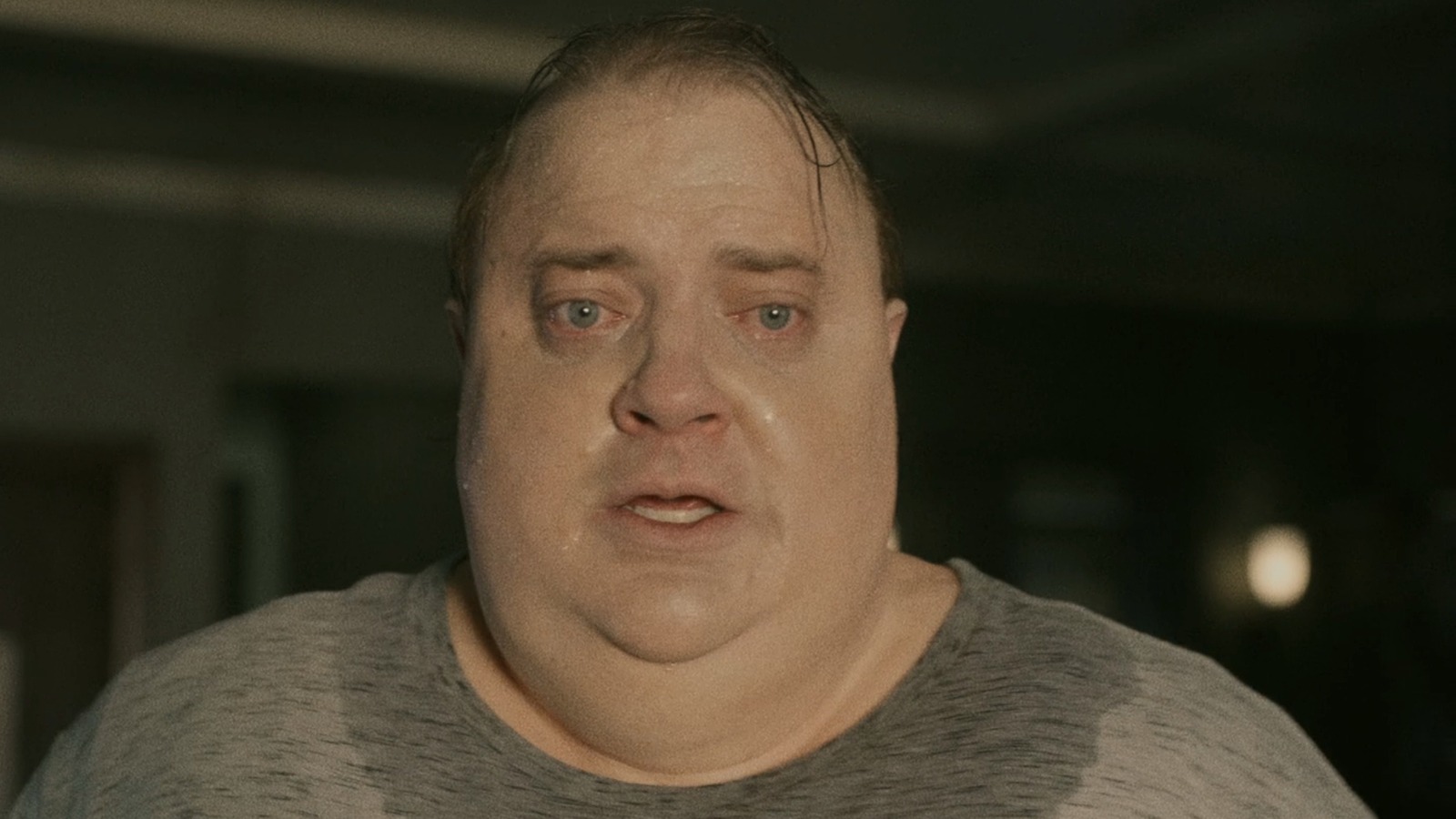Brendan Fraser, who plays Charlie in “The Whale,” has a theory about the film’s ending that might surprise you. He described the ending to Entertainment Weekly and, in doing so, revealed that he does not think his character perishes in the final moments of the film:
“[I]t’s a Herculean effort that he makes to even get to his feet. For him to finally break through to [Ellie], humble himself before her, and let her know that he made a mistake and is sorry for it. While his life has not physically ended in that moment, I think that he knows he doesn’t need to live any longer, which is why he takes off his breather, he’s got her reading the essay, and he does take to his feet like three Olympic dead-lifters, takes his baby steps to his baby, and in that beautiful two-shot, a great white light appears, and they look skyward. Depending on your belief system, spiritually or otherwise, we see that Charlie — with a touch of magic realism — finally does fly.”
The white light and skyward look, along with the state of Charlie’s health, definitely suggest that this is the moment his life “physically” ends, despite Fraser’s interpretation. However, Charlie’s march toward his daughter could be interpreted as a purely symbolic moment in itself.
“I think it’s an apotheosis — you can take it how you want it,” added playwright Samuel D. Hunter, who also adapted the work for the screen. “In the play, the way I wrote it is that you hear a sound of waves and they slowly intensify through that scene, so, there’s a way to read it both ways. It wants to be miraculous, either literally or figuratively, and I think you can watch it either way.”
